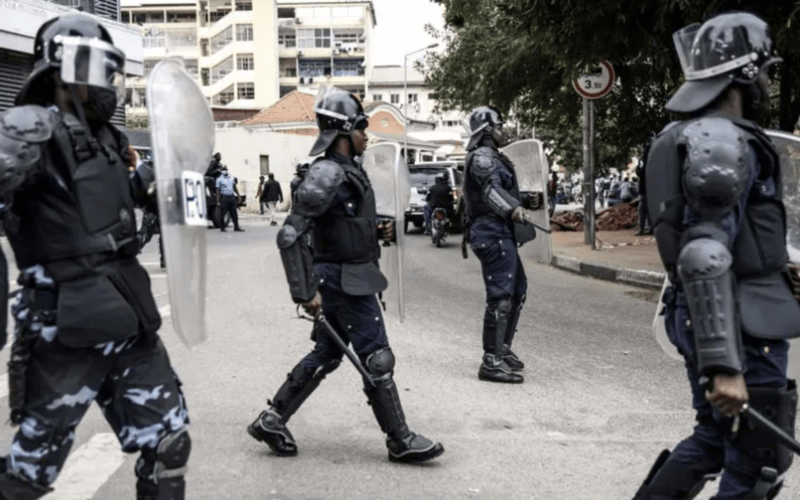UN demands probe into Angola fuel protest deaths
Updated | By AFP
The United Nations on Thursday demanded a thorough
investigation after two days of unrest and looting in Angola during a protest
against a fuel price hike killed more than 20 people.

Violence erupted on Monday, the first day of a strike called by taxi drivers to protest against the July 1 increase in fuel costs in the oil-rich nation where millions live in poverty.
It was some of the worst unrest in several years in the Portuguese-speaking southern African country.
"Authorities in Angola must carry out prompt, thorough and independent investigations into the deaths of at least 22 people, as well as associated human rights violations, during protests this week against an increase in fuel prices," UN Human Rights Office spokesman Thameen Al-Kheetan said in a statement.
"According to official reports, more than 1,000 people have been detained. Unverified footage suggests that security forces used live ammunition and tear gas to disperse protesters, which points to an unnecessary and disproportionate use of force."
Sporadic gunfire was heard across the capital Luanda and several other cities on Monday and Tuesday as people looted shops and clashed with police.
Kheetan noted that some of those protesting resorted to violence and that some reportedly took advantage of the unrest to commit criminal acts.
"We call on the Angolan authorities to refrain from resorting to unnecessary or disproportionate use of force to maintain public order, and to guarantee the full enjoyment of the rights to life, freedom of expression, peaceful assembly and association," he said.
"Any individuals who may have been arbitrarily detained must be immediately released. All protesters taking to the streets to express their opinions should do so peacefully. All human rights violations must be investigated and those responsible held accountable."
The strike was the latest in a series of protests this month after the price of fuel was hiked from 300 to 400 kwanzas ($0.33 to $0.43) a litre on July 1.
The government's move to lower its heavy fuel subsidies reportedly followed International Monetary Fund calls for more public money to be spent on health and education.
But it has angered many in the country of 36 million people, already under pressure from inflation of around 20 percent and an unemployment rate of nearly 30 percent.
Find us on social media
Follow the ECR Newswatch WhatsApp channel here
MORE ON ECR

Show's Stories
-
Durban's marginalised communities take centre stage in powerful film
God's Work, a film about Durban's marginalised communities, is sparking ...
Stacey & J Sbu 14 hours ago -
More South Africans relying on credit to survive
South Africans are increasingly relying on credit to make ends meet, wit...
Stacey & J Sbu 15 hours ago